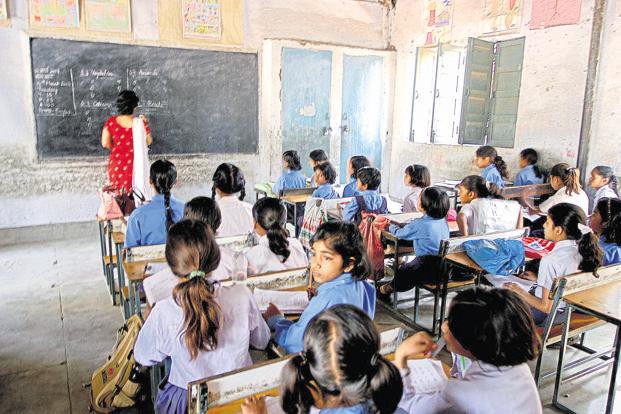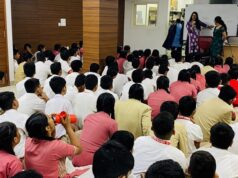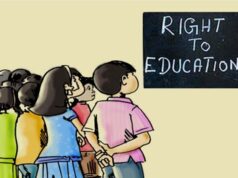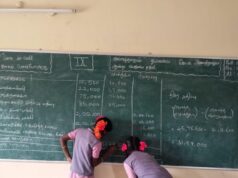Basavaraj Horatti, the former minister for primary and secondary education in Karnataka, is anguished by the declining enrolments in state government schools. He demanded that parents should be allowed to admit their children in private schools only after all the seats in government and private-aided schools are exhausted. The enrolment decline is not limited to Karnataka, but is happening across the country. In 2011–15, the total enrolment in government schools fell by 11.2 million, whereas in private, it rose by 16 million.
This shift in enrolment from free to fee-paying schools is a result of low-learning outcomes and parental preference for English-medium schools. If one wants to retain parents in government schools, one must address their concerns rather than restrict their choice.
The government of Karnataka is, in fact, addressing concerns to resolve the challenges. For instance, in June, it proposed to pilot English-medium classes in 1,000 government schools. For learning outcomes, some interventions by state governments (like monitoring teachers with cameras) had shown significant progress during their pilots. Despite this, they could not be sustained. Karnataka, therefore, must look for alternatives in systemic reforms, and the mergers that are being considered in the state provide a perfect opportunity.
Horatti proposed the merger of the department of primary and secondary education with the department of higher education to ensure “continuity of policies”. Similar experience from Rajasthan, where the Sarva Shiksha Abhiyan (SSA) and Rashtriya Madhyamik Shiksha Abhiyan (RMSA) were merged recently, is positive. It streamlined resources by eliminating duplication of staff, buildings, vehicles and efforts, which resulted in 27% cost savings. The merger is relevant to Karnataka, not so much for cost saving, but because it creates a golden opportunity to systemically fix the inspection process and, consequently, learning outcomes. Karnataka must, therefore, capitalize on the opportunity.
Inspection, key to improving outcomes, needs to be more robust. Karnataka had recently introduced a biometric attendance system to tackle teacher absenteeism. However, the inspecting officers who were required to take action against the errant teachers failed to initiate it, rendering the installation of biometrics moot. Without a strong inspection system, all the other policies intended to improve quality will also suffer a similar fate. The inspecting officers are occupied with many trivial and conflicting responsibilities. According to a dated review, the inspecting officers are engaged in multiple non-core activities such as “collecting donation, in cash or kind, for the benefit of education” and “handling pension cases”. Of their work time, only about 40% is spent on supervision and inspection (31% on inspection of construction activities and 8.7% on supervision of academics). One inspector in Karnataka is in charge of about 300 schools. Given that less than 10% of his time is spent on academic supervision, even at the rate of one visit per school in a year, an inspector has to visit about 13 schools per day in the 231-annual school days.
Inspection not only has low priority, but also suffers from missing accountability. On one hand, an inspector is responsible for constructing classrooms and, on the other, to inspect the construction and ensure that he did the job properly. An inspector is required to perform, and also self-ascertain the quality of his performance. This absence of accountability results in a lack of independent inspection of schools and creates perverse incentives to suppress faults from public view. Therefore, through a modification during the mergers, Karnataka should fix the inspection structure.
When merging the three levels of departments and two levels of schemes (SSA and RMSA), the merged schemes should be separated from the departments into a new body. The new separated body will entail “delivery” of education and include functions related to management, such as infrastructure, teachers, books, uniforms, meals and scholarships. An officer of the rank of a secretary can solely oversee this new body and dedicate his energy to improving the quality of delivery. The existing personnel of the SSA, from the state to village level, will report to the new secretary (they currently report to the department) and continue managing daily activities. The inspecting officers from the department will hold the delivery wing accountable for violations.
To ensure similar accountability at all three levels (primary, secondary and higher education), the scheme which currently entails college education — Rashtriya Uchchatar Shiksha Abhiyan (RUSA) — can also be brought under the new body. The new body (of merged schemes) will ensure delivery of education (from primary to college), and the officers of the merged departments will ensure that the violators are held accountable. This reform would usher in much-needed efficiency and accountability, and eliminate conflicting interests and perverse incentives from the system.
Karnataka’s problem of low education quality isn’t unique but ubiquitous. As the right steps are being undertaken, a golden opportunity for systemic reform is being created. If Karnataka capitalizes on it, it can be the first state in the country to be hailed for its excellent education governance. The state can set a precedent of a robust education governance system for the other states to replicate.
Alston D’Souza and Ritika Shah are with the Centre for Civil Society (CCS). Comments are welcome at theirview@livemint.com.
Post Disclaimer
The opinions expressed in this essay are those of the authors. They do not purport to reflect the opinions or views of CCS.






